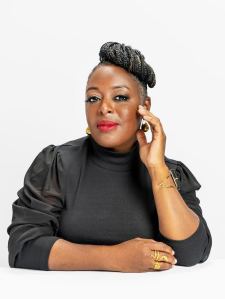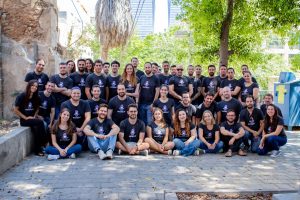
VC Office Hours: Black Girls Code founder Kimberly Bryant starts a new chapter
Kimberly Bryant has had quite a few ups and downs during her journey as an entrepreneur, especially over the past year.
Known for founding Black Girls Code, a nonprofit organization that helps young Black girls enter STEM fields, Bryant faced a slew of problems in 2021, when tensions started boiling between her, her employees, and her board. Allegations of poor management followed and eventually led to her indefinite suspension from the company, and a few months later, she was let go. The situation is still developing.
At the time, many founders told TechCrunch it was a wake-up call to pay more attention to how much power they give boards.
Regardless of the drama, though, Bryant is back with her latest endeavor: a 12-week startup accelerator program called The Black Innovation Lab (BIL), under the umbrella of her newly launched investment firm, Ascend Ventures.
Based in Bryant’s hometown, Memphis, the accelerator aims to cut checks for Black-founded companies addressing timely issues such as artificial intelligence, climate and healthcare.
Black founders are woefully underfunded, consistently raising less than 2% of all venture capital in any given year. The numbers hardly move when broken up by category: Last year, for example, Black founders raised 1% of all capital invested in climate funding.
“Black founders have the potential to make a significant positive impact on the world,” Bryant told TechCrunch+. “A strong sense of community, equity and culture are keys to the success of any startup endeavor.”
Bryant plans to launch BIL next fall with gener8tor, one of the biggest startup accelerators in the nation. The accelerator aims to host one to two cohorts of six early-stage and pre-seed companies per year. Each startup will receive $100,000 of guaranteed funding in exchange for equity, which is a common practice with startup accelerators. Bryant wants to expand the accelerator throughout the U.S. over the next 10 years.
Ascend Ventures currently aims to focus on supporting startups in its accelerator program, though Bryant says she wants the fund to one day invest in companies outside of BIL.

Image Credits: Kimberly Bryant
The timing is right: The southern U.S. is seeing a boom in venture funding as resources continue to grow in the region for founders who live and have relocated there. Last year, during the venture pullback, the southeast U.S., including states like Georgia and Florida, was the only region not to see a substantial decrease in funding. Atlanta has emerged as a shining jewel of the region, following in the footsteps of Austin and Miami.
Upon launch, the BIL will be based out of Memphis’ historic Griggs College, a Black-owned institution that operated from 1949 to 1971. Bryant is crowdfunding to help expense the BIL program but says she also has support from private angel investors, LPs, and the Tech Hubs program.
We recently caught up with Bryant to talk about this new endeavor, what she’s learned since leaving Black Girls Code, and what kind of legacy she wants to leave within the startup ecosystem.
(This interview has been edited lightly for length and clarity.)
TC+: How did your experience with Black Girls Code impact how you set up BIL?
KB: As I transitioned from my role with Black Girls Code (BGC) at the end of 2022, I embarked on a journey of self-reflection and learning from the mistakes I made as a founder. During this time, I found myself inundated with messages from other founders, and as I connected with them, a common theme emerged — the need for key business tools and support in areas such as board governance, IP protection, and access to adequate capital for growth.
It wasn’t until I left BGC that the vision for Ascend Ventures and Black Innovation Lab became clear. The urgent need was a space for entrepreneurial mentorship and support, where founders could access the resources and guidance needed to succeed. My lessons from Black Girls Code also guided me to prioritize diversity and equity.


